- Home
- Jane Smiley
Gee Whiz Page 5
Gee Whiz Read online
Page 5
Even so, Mom and Dad seemed to like him. When he and Danny left that evening (after cleaning up, of course, though I helped), Mom said, “Come back anytime,” just the way Mrs. Goldman said it, as if she actually meant it.
* * *
Since the next day was beautiful, everyone was at church. What with all of the events of the week, I had forgotten about Brother Abner. He was missing again. Apparently, Sister Hazen and Sister Larkin had decided to go see him. Before the hymns started, I heard them talking to Mom about it. Sister Hazen said, “I’d been there before, about fifteen months ago. I went there to deliver a chair we gave him, and I have to say the place looked a little basic then, but …”
“You know he uses an outhouse,” said Sister Larkin. “Just like the old days. I grew up with an outhouse.” She clucked and waved her hand.
“And if he wants hot water, he heats it on his range. He said to me he thought piped-in hot water was bad for you. Lead in the pipes.”
“A bath a week, according to him, Saturday night, and he uses one piece of soap. Carries it from one sink to the other, until it’s down to a little bead.”
“That’s very frugal,” said Mom.
“Oh, ‘frugal’ isn’t the word,” said Sister Hazen.
Sister Larkin said, “But those are the old ways. Go to bed at dusk, read the same few books over and over, use up your bar of soap. When my folks got electric light on the farm, my mother was ashamed of how dirty the walls were, but that was decades of gas lamps and kerosene lamps for you.”
Mom said, “But does he seem ill?”
“Oh, he does,” said Sister Larkin. “Coughing into his handkerchief, then asking us if we’d like a cup of tea. My land! I am worried.”
Mom said, “Was his place cold?”
“Well, it was a sunny day, and his place faces south. It was warm enough that afternoon, but it must get chilly. Must. The little woodstove looked unused to me, though there was some firewood in the kindling box. Maybe he doesn’t feel good enough to put a fire in there, and he thinks that blankets will be enough.”
“He’s very thin,” said Mom.
“Gracious me, I was shocked!” said Sister Larkin, who loved to cook and looked it.
Then they all started shaking their heads.
Sister Hazen said, “He thanked us for coming, but with these old men, you never know what to do. Pride means everything to them, and they don’t want anyone to see how they are. I sometimes think …” She shook her head again, then said, “Well, what is the charitable thing to do? Hurt their pride by saving them, or let them go on the way they want to?”
Sister Larkin said, “And you can’t ask them, because they won’t give you a straight answer.” All three women started tutting.
After that, we had our usual service, with five hymns before the brothers started sharing the passages in the Bible that they wanted to talk about, then some more hymns, which were my favorite part, because Dad had a good voice and Mom knew how to harmonize. After that, supper, which Sister Lodge and Sister Larrabee had made, chicken stew and boiled potatoes, with cupcakes for dessert. But I could see the talk about Brother Abner go around the room. Two or three people would lean toward one another, heads would bend, lips would move, heads would shake, then those people would talk to someone else. The sisters would talk to each other, then to their own male relatives, then the men would talk to each other. It would be Dad and Mr. Hollingsworth and Mr. Brooks who would be expected to come up with an idea. I didn’t know what it would be, though.
At the end of the meal, there was plenty of chicken left, some potatoes, and two cupcakes. Sister Lodge said that she would take the food by Brother Abner’s place and tell him the congregation was thinking of him. Everyone agreed that that was not only a charitable thing to do, but a tactful one. On the way home, Mom and Dad mumbled in the front seat. I could have leaned forward and heard them, but I didn’t. I had no ideas, either.
It may be that Kyle Gonzalez had seen every movie about the Roman Empire ever made, or at least he had read about them. Whenever Miss Cumberland said any name at all—Antony, Caesar, Cleopatra, Marcus Aurelius, Scipio, Carthage—Kyle would raise his hand and ask if she had seen the movie about that person. His favorites were Ben-Hur, Spartacus, and something about Hannibal, which was in Italian, which Kyle did not know, but he enjoyed the film anyway. I supposed that he was allowed to stay up all night, anytime he wanted, and watch old movies on TV. All I knew before we studied the Romans in class was the Bible stories and the Shakespeare play Julius Caesar, which we had read at the end of seventh grade. I was very fond of that play because we did a reading of it at the Goldmans’ house, and that was when I started to be friends with them. Since we had spent a little too much time on the Greeks, Miss Cumberland’s favorite, we had to rush through the last four hundred years of the Roman Empire before we took our test on Friday. In the spring, we were to go on to medieval Europe.
My favorite thing about the Roman Empire was that it got as far as England, which Miss Cumberland said was as far away from Rome as we were from Colorado Springs, which might not seem very far, but try walking, which is what the Roman soldiers had to do. Miss Cumberland was very fond of Hadrian, who was one of the good emperors and who visited England and built a wall there that still stands. He also visited Egypt and Jerusalem. He liked to take architects with him and have buildings and temples built. She showed us a slide show of some of the buildings, as well as of statues of Hadrian, and she also said that a French writer had written a book called Memoirs of Hadrian. I was sure Kyle would do an extra-credit report on it by Friday. We were looking forward to Christmas vacation. Once the tests were over Friday, we would have eighteen days. I did not expect to do well on my test, but thanks to being friends with Sophia, who didn’t mind explaining things, I had gotten an A on the Egyptians, an A-minus on the Sumerians, a B-plus on the early Greeks, and an A on the classical Greeks. These grades averaged out to an A-minus, so a C on the Romans would only take me down to a B-plus for the whole semester. A B-plus would get past Dad, no problem. However, the week was hard work, with scads of homework, more than I could do on the way home on the bus. Mom helped me by always riding Nobby and Lincoln. Dad rode Oh My and Marcus, and I let Blue slide a little. I would catch up in the course of eighteen days of vacation.
About the only fun at school for that whole week was lunch, and even then, we spent a lot of time listening to Sophia explain geometry problems to Stella, who listened carefully, but always seemed amazed at what she heard. At least, she was no longer getting an F or even a D—thanks to Sophia, she was getting a C-plus. I liked geometry. I thought it was pretty easy to picture what the teacher was talking about, and as for the numbers, you just had to memorize them. Even pi you only had to memorize out to four decimal places—3.1415. It was like a good phone number—3+1=4+1=5. Sophia’s phone number was like that, 835-1448: 8–3=5–1=4+4=8. I didn’t tell anyone that that was how I memorized stuff. I thought it sounded too much like Kyle Gonzalez.
The other interesting thing at school was that Leslie had a boyfriend, and he was a Condor. True, he was a basketball Condor (and taller than she was) rather than a football Condor (the basketball team had had a 6–3 season, and so they were pretty popular). He was a junior. His name was Ronny Wood, and sometimes he sat with us at lunch. Leslie always sat with us. She said that if he wanted to have lunch with her, he had to sit with us, too. He was a guard on the basketball team, and as a sophomore had averaged fifteen points a game. Leslie said that this was good. He had a driver’s license, and he brought her to school every morning by seven o’clock. They ran at least two miles around the track before changing and going to class.
All in all, I liked high school better than I thought I was going to, but there was a lot to think about. You couldn’t just roll out of bed and put some clothes on and go, making sure you were clean and your hair was combed. You had to have made up your mind about all sorts of things, like what group you wanted to look like
(even though you might not be a part of that group), whether you wanted to stick out or fade into the woodwork (I wanted to fade into the woodwork), whether you wanted the teachers to like you, really like you, or just get along with you. The high school was big, and there were a lot of ways to be famous there, not all of them good. Stella and Gloria said that you had to seize your opportunity, and talked a lot about what opportunities there were. So there were plenty of reasons I was glad to see the end of the semester. No one in my family had had to worry about any of this—Mom and Dad had gone to a country school in Oklahoma that had about ten students of all ages, and Danny had quit (after goofing off most of the time before that).
Chapter 4
THURSDAY NIGHT, JUST BEFORE DINNER, DANNY ROLLED UP TO the gate in his truck, pulling a strange trailer—not Jake Morrisson’s and not Jerry Gardino’s. He honked, and since I was on the front porch, not having yet taken off my boots, I ran out and opened the gate. It was nearly dark. He pulled through, then I closed the gate, latched it, and ran after the truck and trailer to the barn. Dad was out haying the horses. Dad never stopped what he was doing in order to do something else—he said that “one thing at a time” was the key to success—but nevertheless, he did walk fast to the barn when he had thrown out the last flakes, pushing the wheelbarrow ahead of him.
By that time, Danny had the ramp of the trailer down and the horse unfastened up front. He unhooked the tail chain, and the horse backed down the ramp, one step at a time. He was almost pure white, with only a few dapples around his knees. And he was huge, bigger than Dad’s favorite horse, Lester, that he’d sold to Mr. Jordan, bigger than Onyx, bigger than Pie in the Sky. At the bottom of the trailer, he lifted his head and flared his nostrils. He stood absolutely still. He was so white he seemed to shine in the dusk. Danny said, “Meet Gee Whiz.” Then he added, “By Hyperion, out of Tilla, by Birkhahn.”
The back door opened, and Mom came out with a wooden spoon in her hand. There was a whinny from the mares, and then there was a whinny from the geldings. Gee Whiz pawed once, flared his nostrils, and answered. He was loud, no doubt because he had a huge chest. I said, “Is that horse over seventeen hands?”
“Seventeen-one,” said Danny.
Seventeen hands and one inch is big for a horse—and I could see that his withers were above the brim of Danny’s hat.
“What in the world would you do with such a big horse?” said Dad.
“Well, he’s been a racehorse his whole life. He’s eight, he’s had sixty starts, he’s won a hundred thirty-four thousand dollars, and he’s finished. Mr. Pelham will think of something to do with him, but they are full up for now, so I said we could put him up for a month, seventy-five dollars, until some of the two-year-olds go to the track and open up some space. As far as I can tell, he’s sound as can be.” Danny turned him in a little circle, then took him into the barn, where he put him into a stall. That seventy-five dollars was another little reason not to sell Oh My too quickly, or to find a place for Lady before she really knew what to do with a calf. Marcus, Beebop, and Gee Whiz. Looked like we were in the boarding business.
Danny was excited, which was unusual, because Danny was like Dad—he thought getting excited was a pretty sure way to get disappointed. About the most Danny or Dad ever did was hope for the best. But after Danny cleaned out the trailer and turned it around, then came in for supper, he was smiling and bouncy. I was setting the table. I said, “You didn’t buy yourself a horse, did you?”
Danny laughed. He said, “I have a horse. No, I just … I don’t know. There’s something about this guy, the way he’s been around, done his job. I mean, he’s a beauty.”
“He’s a giant,” said Dad. “I’m surprised he’s still sound.”
“Yes,” said Danny as we sat down, “but look at his bone. He must have nine inches of bone.”
This was, basically, the circumference of his foreleg below the knee. The more the better.
All through dinner, Danny babbled on and on about Gee Whiz. It was like he had never seen a racehorse before, and maybe he hadn’t. I couldn’t think of any racehorses we knew. But he was working at Vista del Canada now, and they had won him over.
Did we know who Hyperion was?
Of course not.
Well, Hyperion was an English racehorse, born in 1930. In thirteen starts, he had nine wins, one second, and two thirds. Two of his wins were English races like the Kentucky Derby and the Belmont Stakes. And he was maybe the greatest sire of the twentieth century, with winning offspring all over the world, in Australia and France, and everywhere. Had we heard of Pensive?
Mom said, “That’s a nice name.”
“Pensive won the Derby and the Preakness, and almost the Triple Crown—he was second in the Belmont Stakes. And he sired Ponder, who won the Kentucky Derby, and was the sire of Needles. Needles won the Derby in 1956.”
Dad said, “I do remember Needles. He was a good horse.”
“Well, he was named Needles because he got pneumonia as a foal, and they had to give him so many shots, that’s what they named him, but he was a great horse. In the Derby, he came from fifteenth out of sixteen, and in the Belmont Stakes, he came from behind to win again. Anyway, this horse, Gee Whiz, is from Hyperion’s last crop, and he is related to all of those other great horses. Of course, he got his size from the dam’s side, because Hyperion was tiny, maybe the size of Oh My.” Danny took a deep breath and actually started eating his food. I hadn’t seen many things that prevented Danny from diving into a minute steak with baked potatoes and gravy, but imagining all of Gee Whiz’s relatives had done the trick.
I knew how he felt. When Warn Matthews had sent me Jack’s probable pedigree (if he was the real son of Jaipur and Alabama Lady, and these days everyone said that he was), I had memorized the names of the horses and said them in my head every night for a while as I was going to sleep. The names were like little fairy tales all in a word or a phrase: Rare Perfume, Sir Gallahad, Blenheim, Nasrullah, Scapa Flow, Priam, Asterus, Mahmoud. I thought for a moment, then said, “I need to get something.”
I ran up the stairs and went into my room. The pedigree was neatly folded in the top right-hand drawer. I grabbed it and ran down the stairs. When I put it on the table, there it was, Jack’s great-grandsire on his dam’s side was Hyperion, through a horse called Alibhai, who was born in 1938. And his son, Determine, had also won the Kentucky Derby. That was Jack’s grandsire. So Jack and Gee Whiz were related.
Danny said, “It’s like Gee Whiz is his great-granduncle.”
Dad said, “Believe me, there are lots and lots of cousins, and very few of them have done much.”
But still, it was interesting to think about.
After supper, Danny and I went out to have another look at Gee Whiz. I admit I was more drawn to him now that I knew he was related to Jack. I saw more grace in his movement and more intelligence in his eye. But he was, indeed, a striking horse, and only part of that was how big he was (good thing the stalls in our barn were really big, much bigger than the stalls out at the stables, which was part of the reason we hardly ever kept a horse in them—most horses take the opportunity to poop all over a big stall, so cleaning a big stall is more work, and bedding a big stall takes more straw). He was tall but he was graceful—as we stood there looking at him, he curved around the stall, and his strides were big but precise. At the same time, he kept his eye on us, not as if he was suspicious, but as if he was curious. He put his head over the door. I had some carrots in my pocket, and Danny had two cubes of sugar. He took them politely. Then, after I asked Danny when he had last raced, and just as Danny said, “He raced Sunday,” Gee Whiz lifted his nose and, very gently, sniffed my hair and then my shoulder. I’d never had a horse do that before. I stood still. Danny didn’t stop him or reprimand him, as Dad might have done. Danny had learned from Jem Jarrow that a horse can be curious, and that that is a good thing. A curious horse is intelligent.
When Gee Whiz went back to his hay, Danny
said, “He ran at Hollywood Park Sunday, in the last race, and I guess he was the oldest horse in the race, and he ran fifth out of ten. The trainer called Mr. Leamann and said that he ran a game race, but he had done his work, and it was time to do something else. I guess he came back to the barn a little depressed.”
“Do you think that’s true? That a horse knows he got beaten and feels sad?”
Danny said, “Why not? If he knows what racing is about, then he knows what winning is about, and he can’t be good at it without wanting to win. If he wants to win, then he knows if he’s lost.”
I said, “What about the carrot? What about the stick?”
Danny cuffed me on the head and said, “Now you sound like an idiot.”
That was the Danny I knew.
I walked him to his truck, only then asking him how Jack was doing.
“He’s doing fine. He’s spending the whole night inside tonight. First time. Saturday, I’m going to pick you up early and take you over there.”
“What for?”
“You teach those girls at nine, right?”
“I’m sure Melinda is still down south, but Ellen, yes.”
“Be ready by six. We’ll get to Vista del Canada by seven with time to spare.”
That was a reason to let him out of the gate, latch it, and run inside to study. The time you spend studying goes verrryyy slowly while you are doing it, but after you’ve done it, it seems to have passed very quickly. I’m not sure why that is. At any rate, by Saturday morning, all thoughts of the Romans, the volume of a sphere, poems by dead people, French irregular verbs, and kingdoms, phyla, classes, orders, families, genera, and species had vanished from my brain.

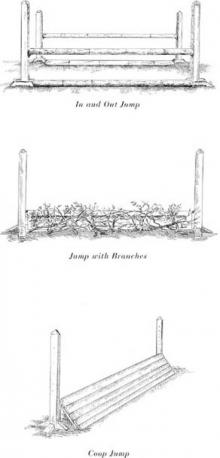 The Georges and the Jewels
The Georges and the Jewels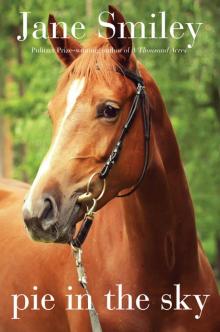 Pie in the Sky: Book Four of the Horses of Oak Valley Ranch
Pie in the Sky: Book Four of the Horses of Oak Valley Ranch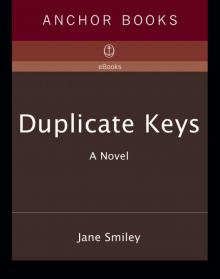 Duplicate Keys
Duplicate Keys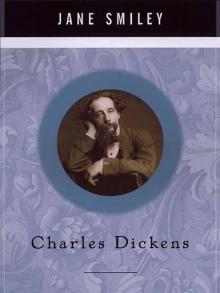 Charles Dickens
Charles Dickens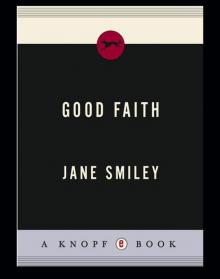 Good Faith
Good Faith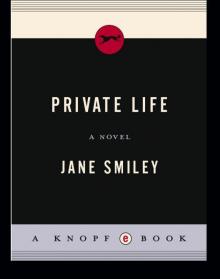 Private Life
Private Life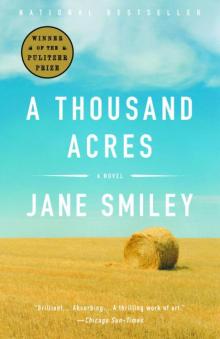 A Thousand Acres: A Novel
A Thousand Acres: A Novel The Greenlanders
The Greenlanders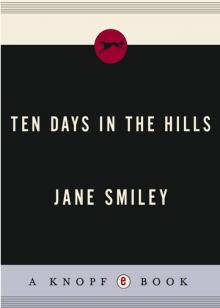 Ten Days in the Hills
Ten Days in the Hills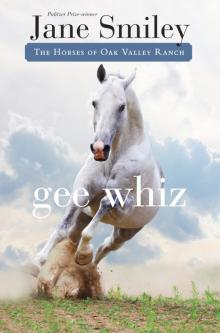 Gee Whiz: Book Five of the Horses of Oak Valley Ranch
Gee Whiz: Book Five of the Horses of Oak Valley Ranch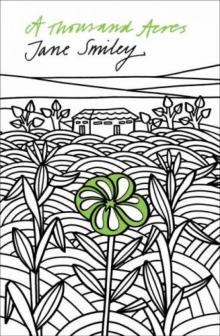 A Thousand Acres
A Thousand Acres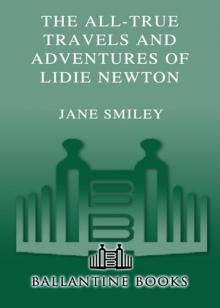 The All-True Travels and Adventures of Lidie Newton
The All-True Travels and Adventures of Lidie Newton Ordinary Love and Good Will
Ordinary Love and Good Will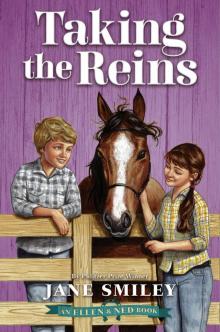 Taking the Reins (An Ellen & Ned Book)
Taking the Reins (An Ellen & Ned Book)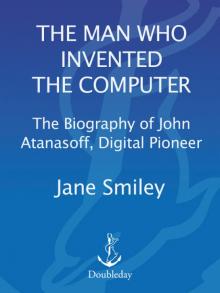 The Man Who Invented the Computer
The Man Who Invented the Computer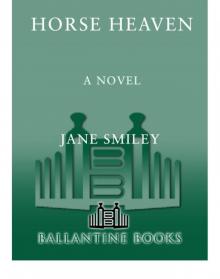 Horse Heaven
Horse Heaven The Age of Grief
The Age of Grief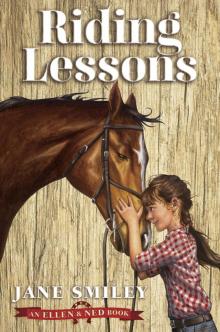 Riding Lessons
Riding Lessons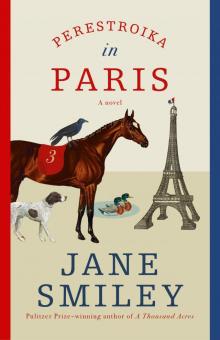 Perestroika in Paris
Perestroika in Paris A Good Horse: Book Two of the Horses of Oak Valley Ranch
A Good Horse: Book Two of the Horses of Oak Valley Ranch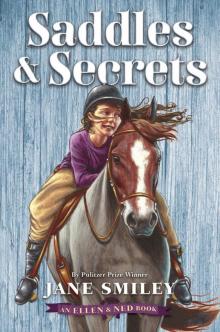 Saddles & Secrets (An Ellen & Ned Book)
Saddles & Secrets (An Ellen & Ned Book)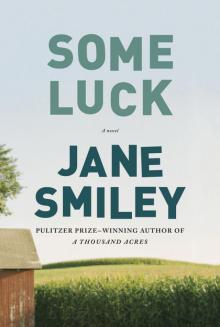 Some Luck: A Novel
Some Luck: A Novel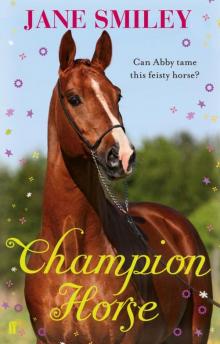 Champion Horse
Champion Horse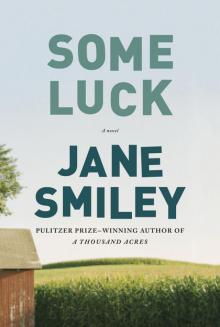 Some Luck
Some Luck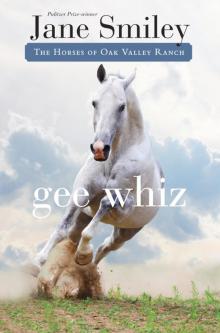 Gee Whiz
Gee Whiz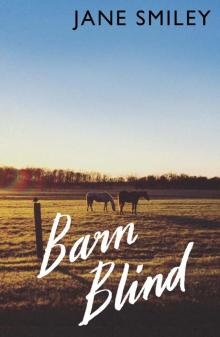 Barn Blind
Barn Blind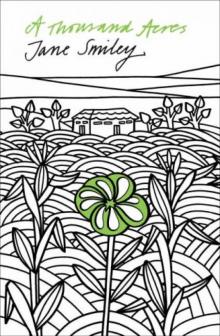 A Thousand Acres (1992 Pulitzer Prize)
A Thousand Acres (1992 Pulitzer Prize)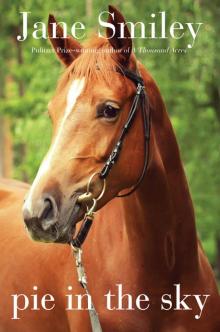 Pie in the Sky
Pie in the Sky True Blue
True Blue A Thousand Acres_A Novel
A Thousand Acres_A Novel A Good Horse
A Good Horse